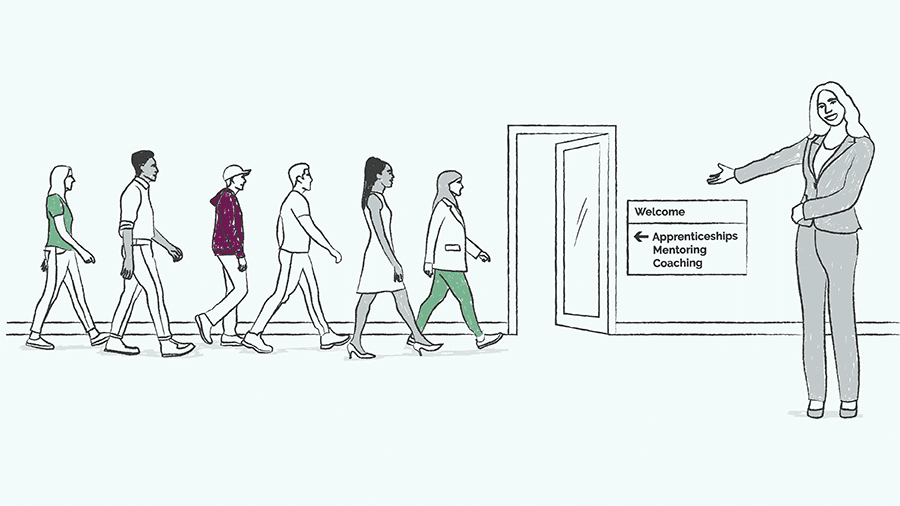
When diversity and inclusion became a significant business issue in the following decades, the focus unsurprisingly fell on gender and race, perhaps a little later LGBT and disability. Class is relatively rarely discussed.
Yet if anything, social immobility has worsened over the past 25 years. If they want to access the best talent and give back to their local communities, then business leaders need to understand why this is, and what they can do to change it.
The problem of access
Between 1950 and 2010, the proportion of young British people attending university increased by a factor of 20, as the economy demanded ever more knowledge workers.
For hundreds of thousands of families, this opened the door to unprecedented career opportunities for children relative to their parents.
As a consequence, the senior ranks of the professions and particularly business ceased to be the sole preserve of those born into the upper middle classes – something which ultimately benefited everyone.
This is no longer the case. University attendance is relatively stagnant, and if anything young people from poor backgrounds are less likely than before to enter tertiary education due to high costs and the prospect of even higher debt.
At the same time, a degree has become a necessary condition for the overwhelming majority of the best entry-level jobs, with the overall result that many highly able people are also invisibly blocked from eventually reaching senior positions in corporate Britain.
Growth Index 2022, which ORESA recently supported, examined the educational background of the founders and CEOs of the UK’s fastest growing 100 companies. Nearly a third (31%) got to where they were without a degree, compared with only 3% of FTSE 100 leaders.
So there is talent and ambition out there, and if larger businesses don’t make themselves welcoming to them, then they will miss out.
What you can do
Many employers have made significant effort to create alternative paths for jobseekers, beyond the graduate milkround. Apprenticeships in particular have become commonplace, largely because of the incentives created by the Apprenticeship Levy.
However, for many there is a nagging doubt that these efforts aren’t necessarily reaching those who could most benefit from it – that in effect they may be helping those from the lower middle classes find a way in without going to university, but that those from the most deprived backgrounds just aren’t applying.
Moving the dial on this – like anything else – requires a plan. It is not enough to say you want to be open to applicants from all backgrounds. Measurements should be made and targets set.
The Social Mobility Pledge – set up by former MP Justine Greening and businessman David Harrison – suggests businesses commit to three specific actions.
The first is outreach, where employers engage with local schools and colleges to provide mentoring and coaching, usually through organisations like the Prince’s Trust, Speakers for Schools or the Sutton Trust.
The second is providing access to apprenticeships and structured work experience to people from disadvantaged backgrounds, either through schools and local authorities or charities.
The final element is to attempt to level the playing field for job applicants. This could range from name or university blind applications to efforts to better factor in context when appraising candidates.
(If you get two As and a B grade at A-level in a college where the average is CDD, while also working 24 hours a week in a cafe and looking after your two younger sisters, does that really make you a less impressive candidate than someone who got three As in a school where everyone else did?)
Other ideas include fast tracking and development programmes that take promising staff from the shop floor into head office roles, and sponsoring places on degree programmes.
Business cannot solve society’s problems single-handedly, but by taking small steps like these, leaders can make a difference, improving opportunities for the communities they operate in while also improving their access to bright, committed people.
















